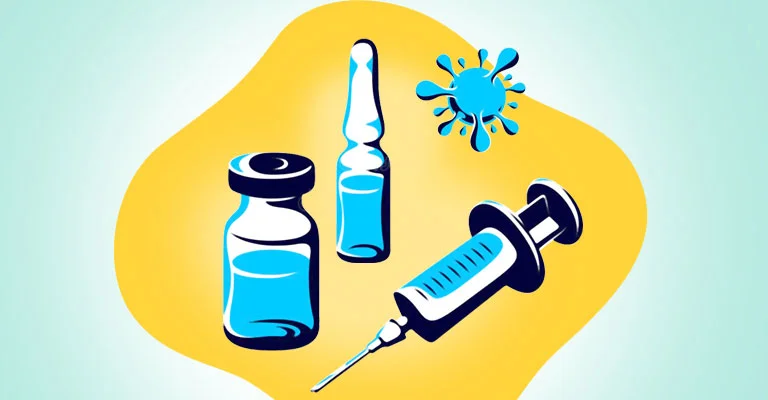VACCINE HESITANCY-WHY ARE SOME PEOPLE HESITANT TO TAKE THE VACCINE
Vaccination hesitancy is defined by the World Health Organization (WHO) as a reluctance or unwillingness to vaccine despite the availability of vaccinations, which threatens to undo progress gained in combating vaccine-preventable diseases. The World Health Organization (WHO) named "vaccine hesitancy" one of the top ten threats to world health in 2019.
Vaccine apprehension is a worldwide phenomenon that has existed since the beginning of immunizations. You can find vaccine hesitancy in multiple settings and among people of many ages, ethnic and racial groups, educational levels, and political groups.
Why People Choose Not to Vaccinate
The reasons why some people refuse to be vaccinated are numerous. They differ depending on the population, vaccine, and historical environment. Complacency, inconvenient vaccine access, and a lack of confidence are cited as vital factors for hesitation by a WHO vaccination advisory council.
Vaccine Hesitancy: A concern in India in the past
In 2017, vaccination rates for measles and rubella (MR) were low in Tamil Nadu and Karnataka. Fear, disinformation propagated on social media, and a lack of awareness were the prime causes. In 2016, Muslims in Kerala had a poor vaccination rate for diphtheria. One of the reasons was the propaganda that vaccines use animal products, and Islamic Law prohibits this.
Vaccine Hesitancy during COVID-19
Despite improvements made by various pharmaceutical businesses and international organizations, a World Economic Forum study issued in November 2020 revealed an increasing reluctance among individuals to get a vaccine. According to a meta-analysis study published in the British Medical Journal, just 68.4 percent of the world population is willing to receive the Covid-19 vaccination, which is a low percentage given that vaccines can prevent diseases and save lives.
The grounds for hesitation in the case of COVID-19 are similar to those previously documented for vaccinations. These include general concerns about side effects and particular anxieties that the vaccine contains a live virus that will cause disease or that the vaccine would induce infertility.
Other typical reasons for COVID-19 vaccine hesitancy include:
• Concerns about the COVID vaccine's development and testing process, whether it was appropriately evaluated in multiple racial/ethnic groups, and the COVID vaccine's development speed.
• Mistrust of the medical establishment, unpleasant personal experiences.
• The belief that patients must pay for the vaccine out of pocket.
• Concerns that there will not be enough vaccine for two doses.
A Vaccine Trust Deficit
Doctors in other parts of the world have been reluctant to take vaccines that have not undergone thorough testing. Initially, healthcare professionals were ecstatic to receive the vaccination. But then, as a result of the infodemic, things go viral on social media. People exaggerate the adverse effects, and it increases fear, not only among healthcare professionals but also among the general people.
The scientific community in India has spoken out against hasty vaccination approvals, questioning the government's decision-making process with insufficient facts and evidence. Covaxin, for example, was approved in "clinical trial mode" by India's pharma authority, with no explanation as to what that meant.
Apart from the lack of clarity on approvals, Bharat Biotech faces the accusation of breaking consent standards during phase 3 trial recruiting, which has sparked suspicion.
Adverse events following immunization (AEFIs)
The Indian health ministry reported a total of 580 AEFIs on Jan. 18. Mild symptoms, such as soreness at the injection site, nausea, headache, overall exhaustion, and more significant symptoms such as breathlessness and chest pain also increased fear among people.
Recommendations to Overcome Vaccine Hesitancy
Two elements play a significant role in improving vaccine confidence in all age groups. First, while considering whether or not to get a vaccine, individuals report that they seek information from their health care providers. Second, studies demonstrate that knowing someone who has taken a vaccination reduces vaccine hesitancy.
Other recommendations include: increasing behavior change communications before the vaccine reach the general public; optimizing mass media (including radio, television, billboards, print material, and the internet), interpersonal channels, and community mobilization to promote and accomplish the intended effects; and people from all walks of life — local community leaders, associations, the commercial sector, celebrities, religious groups, experts, and political leaders – must be actively involved.



